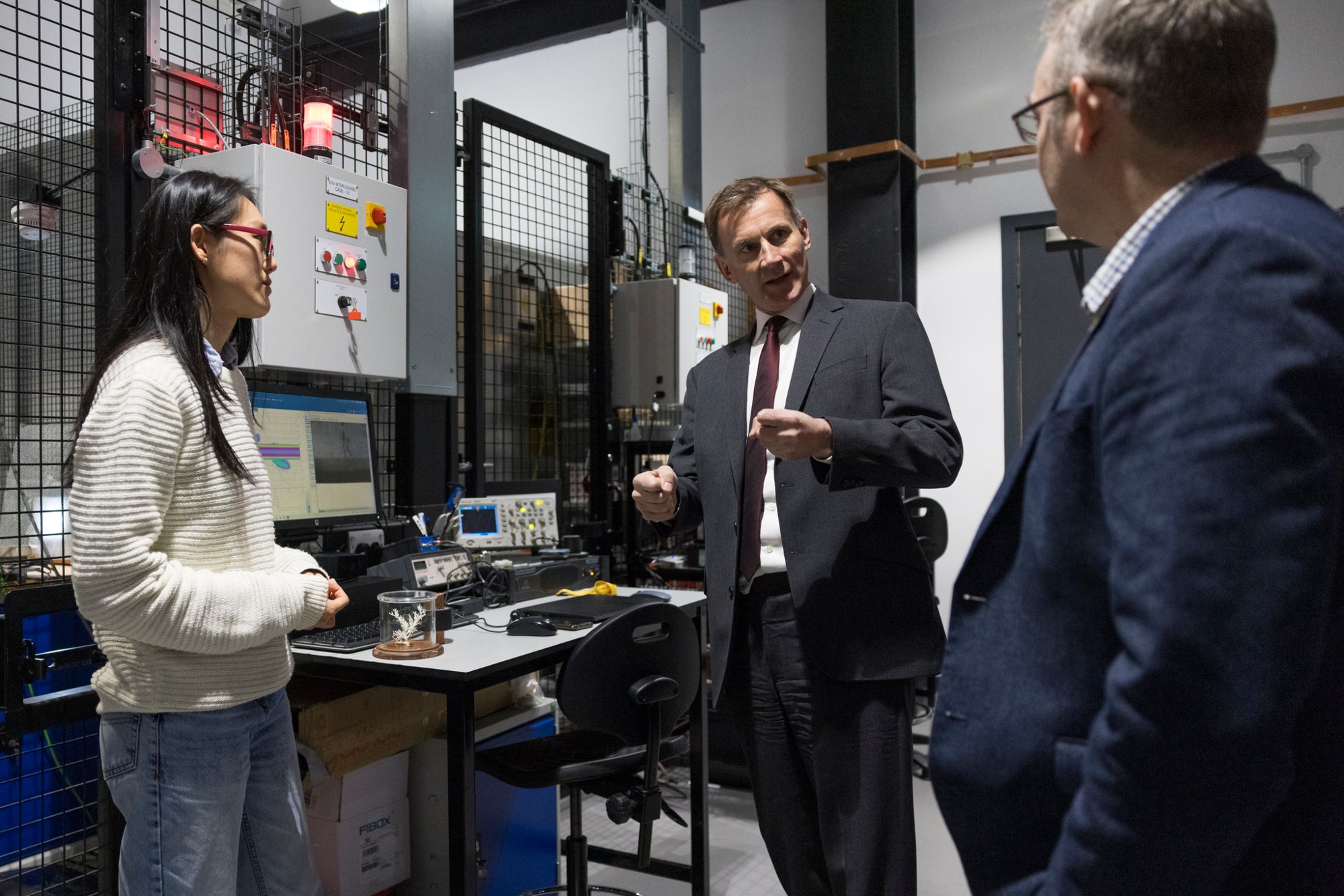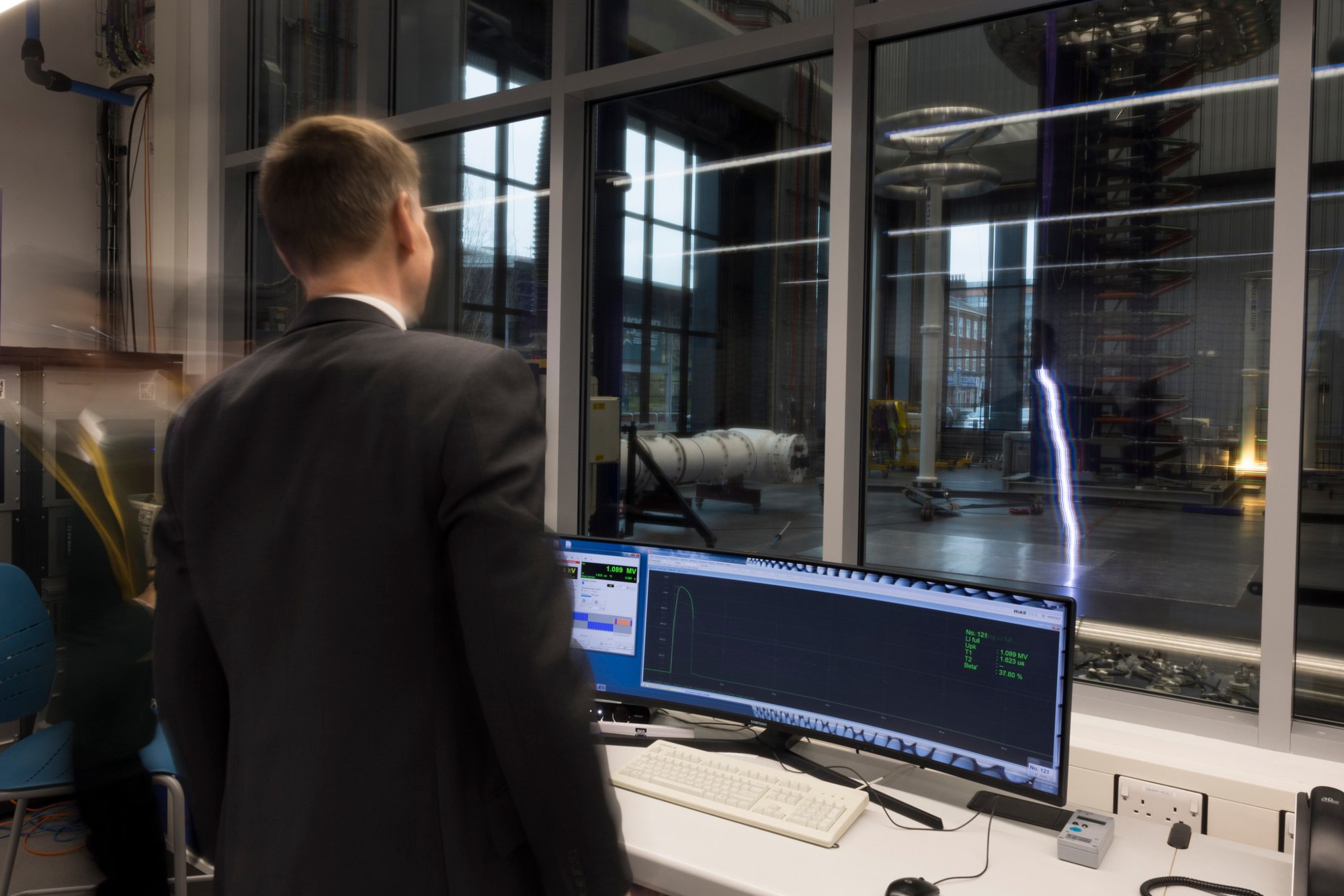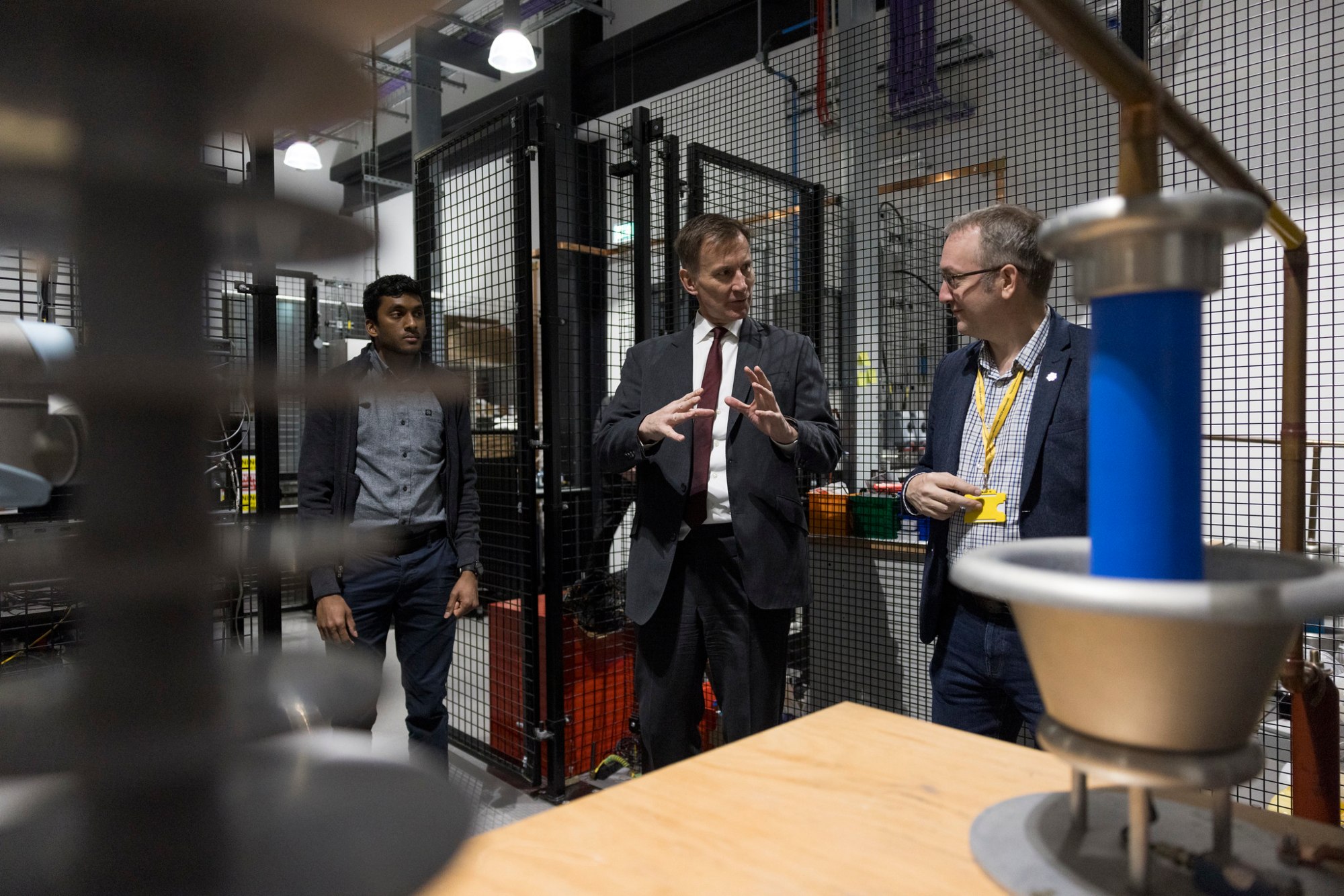Chancellor of the Exchequer visits The University of Manchester to discuss reform of UK’s power network
The University of Manchester welcomed the Chancellor of the Exchequer Jeremy Hunt to learn about its research and expertise in energy networks and discuss the Government’s recent plans to reform the UK’s power network.
The Chancellor visited the High Voltage Lab – the largest university high voltage laboratory in the UK - where he was given a guided tour by Ian Cotton, Professor of High Voltage Technology, to showcase the University’s work in the areas of operation, planning and analysis of energy networks.
The tour started with a demonstration of the Lab’s 2MV impulse generator, which allows researchers to stress test equipment used on the grid by creating real-life lightning voltages. He then moved on to discuss the work of the lab, addressing three critical issues:
- Fast-tracking network upgrades by developing and testing new, innovative technologies ready for deployment onto the live electricity networks.
- Ensuring the power system is ready to transfer increased amounts of generation from new, renewable sources like wave power.
- Making the grid secure and ensuring the UK has access to reliable, affordable, and environmentally sustainable energy.
The Chancellor also had the chance to chat to a number of PhD students, whose work is also actively contributing to the reform of the system and find out how the University is contributing to the skills pipeline integral for the future of the power network.
In a closed-door meeting, energy experts at the University got the chance to ask the Chancellor questions and share their feedback about the government’s plans for the power network, including putting forward their own ideas for the future.

Ian Cotton, Professor of High Voltage Technology at The University of Manchester, said: “It was a pleasure to host the Chancellor at the High Voltage Lab to showcase the work we are doing to solve the real-world challenges associated with ensuring the grid is ready to transfer the increased amounts of electrical energy we need to deliver net-zero.
“We really enjoyed sharing our unique skills, knowledge and equipment that we use to solve these problems and show how we are training a new generation of engineers to transform our energy system.
“The visit provided an invaluable opportunity to engage in insightful discussions regarding the Government's latest initiatives aimed at reforming the UK’s power network.”
Chancellor of the Exchequer, Jeremy Hunt, added: “We are committed to transforming the Great British electricity network. The changes announced at Autumn Statement make it quicker and easier to build new infrastructure and could bring in upwards of £90 billion of global investment.

“Cutting edge facilities at our world-beating universities, such as the fantastic High Voltage Lab, will be at the forefront of this effort, leading the charge on the UK’s transition to Net Zero.”
The High Voltage Lab at The University of Manchester is the largest electrical infrastructure test and research facility in UK academia. From the £9m lab, researchers collaborate with small businesses, large industry organisations and governments worldwide, sharing skills, knowledge and equipment to solve critical, real-world problems.
The lab uses the very latest equipment, capable of testing components that will be used on 400 kV power systems, enabling researchers to find new ways to innovate at pace.
The University is home to the largest power and energy system group in the UK, training 300 electrical engineers a year and supporting 150 PhD researchers in electrical power ensuring a new generation of engineers skilled to transform our energy system.

Dr Vidyadhar Peesapati, Senior Lecturer in Electric and Electronic Engineering, said: “The High Voltage Lab and our expertise plays a major part in the technology, innovation and skills supply chain needed for our net zero future. From finding innovative ways to maintain the thousands of pylons across the grid, to de-risking superconductors for future power transmission, we work on a range of projects at all technology readiness levels to make sure we maximise the potential of both the equipment and our research expertise, to accelerate the development of our future electrical network.”
Find out more about the High Voltage Lab and Policy@Manchester, The University of Manchester’s policy engagement unit.
